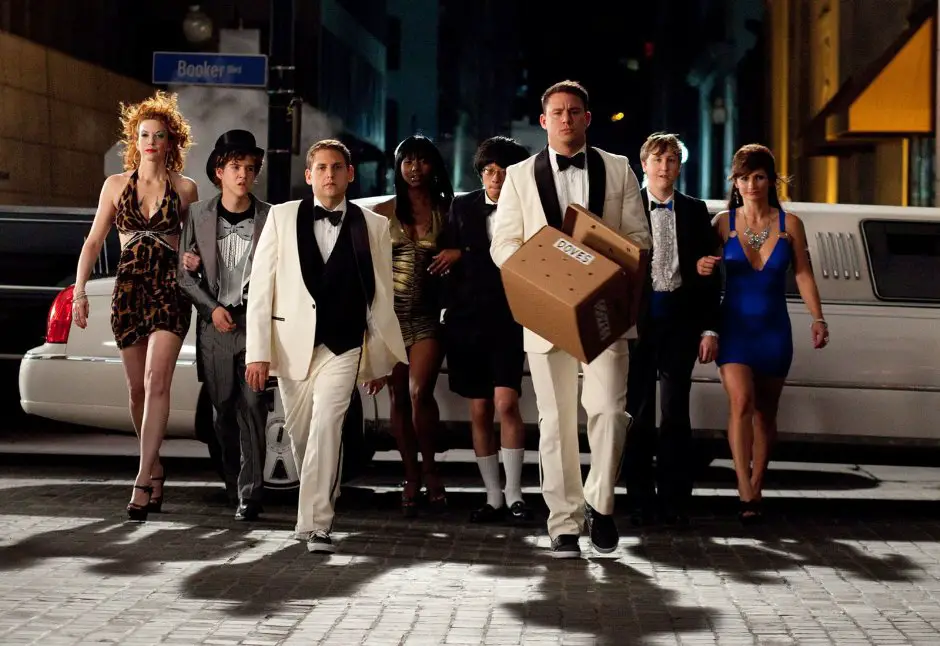“Baywatch” flopped during its opening weekend, and it hasn’t gotten better with time. Not only have critics all taken turns generating creative ways to verbally tear the movie to shreds, but its opening weekend generated around $20 million, half of its projected earnings. However, if you’ve seen the trailers (and if you are anything like me), you laughed out loud. Dwayne Johnson has obvious charisma, Zac Efron has been killing it in every movie he’s been in for the last few years and the whole premise seems to come out of the “21 Jump Street” idea pool. Being stupid in a self-referential way while simultaneously satirizing cheesy 90s television seems like a winning formula, but it is harder than it looks. And the failure of “Baywatch” is compelling evidence of that.
Why “Jump Street” Works
“21 Jump Street” was released in 2012 and received pleasantly surprised reactions from just about anyone that saw it. It was able to find a niche in which it could be both an homage to its genre and make fun of it. The “New York Times” said it best when they reviewed the film: “On TV ‘21 Jump Street’ was an hourlong youth-targeted Fox prime-time offering that mixed whimsy, emotion and public-service-announcement sobriety as it confronted social ills like bullying, bigotry and drug abuse. The movie takes aggressive satirical aim at exactly this kind of piety without risking true offensiveness.”
The fact that two grown men are disguising themselves as high schoolers to infiltrate drug trafficking is constantly mocked. The drug distributor that they are trying to trick even says to Channing Tatum’s face, “You look like you’re fucking forty.” The distributor himself, played by the hilarious Dave Franco, and his posse of high school drug dealers, are the inverse of typical grade school villains: They care about the environment, are college-bound, diverse and socially progressive.

And yet, despite all of these satirical elements, the friendship between Jonah Hill and Channing Tatum is rendered genuinely and effectively. They struggle with high school in an un-ironic way, in the midst of the ridiculous plot, and wrestle with the age-old dilemma of “What if I could do it again? Who would I be this time?” In fact, the sincerity of the protagonists’ emotional struggles and budding best-friendship makes the ironic parts of the movie all the funnier. Add to this Channing Tatum’s breakout performance as a brilliant comedic actor, and you have yourself a winning movie.
“Baywatch” Wants to Be “Jump Street”
“Baywatch” approaches their source material with a similar attitude. It is gleefully vulgar and constantly referencing the ridiculousness of its own premise. The lifeguards investigate murders and save people from exploding boats, all the while calling attention to the fact that such adventures are beyond their pay grade. In one scene, Zac Efron’s character goes as far as to say, “I thought we were lifeguards? Everything that you guys are talking about sounds like a really entertaining, but far-fetched TV show.” Despite this apparent self-awareness, the movie attempts to provide action scenes, buddy-cop chemistry and pseudo-serious, gratuitous sex appeal from the women in the cast. Sound familiar?
Here’s the problem with the angle “Baywatch” chooses to take: The original TV show had almost none of the action movie premises that the movie tries to satirize. Sure, they occasionally solved crimes, but the OG “Baywatch” team usually dealt with shark attacks or potential drownings. Why? The intention of the original TV show was not to excite people, but to unabashedly sell sex on primetime television. So, when you see Zac Efron and Dwayne Johnson in a militaristic training session for joining the lifeguard team, mocking testosterone-fueled competitions of superhero strength, it falls a little flatter than it should.
In one such scene, the two leads are competing by carrying two refrigerators each in front of a cheering crowd, and Efron yells, “This has nothing to do with saving people. These are refrigerators!” The Rock replies, “Oh, this is Baywatch, you pussy!” The Rock’s response to a solid criticism of the movie’s premise is intentionally stupid, as if to say “Who cares what the answer is?” But hyper-masculinity and secret-agent style escapades were not the show, making this joke move from stupidly satirical to just plain stupid.
The Flop
The buddy-cop, action-focused nature of “Baywatch” is not only why its use of the “21 Jump Street” formula was partially unsuccessful, but it’s further evidence that “Baywatch” is stealing the formula in the first place. In other words, “Baywatch” isn’t just trying to do a self-aware/intentionally stupid riff on an old television show; it’s using the same tone as “21 Jump Street” even when it doesn’t fit. Having “21 Jump Street” laced with over-the-top action makes sense, as does the takedown of masculinity tropes and the buddy-cop genre, but you can’t just copy and paste this takedown onto a completely different franchise and expect it to work as authentically.
The characters in “Baywatch” aren’t stereotypes of the show, but rather stereotypes of stereotypes of what people think the show might have been like. It is as if the movie is making fun of a version of the show that was made in an alternate timeline, where action and positive messages about friendship held center stage. All audiences have in this timeline is a movie that makes one joke, namely “Wasn’t Baywatch kind of stupid?” and then builds the rest of itself around saying “Remember how stupid we are being?” Without any genuinely touching relationships to juxtapose the tone with, such as Channing Tatum and Jonah Hill’s in the “Jump Street” franchise, the empty satire is left with no legs to stand on. Online movie critic “MovieBob” says it well when he says, “There’s a point where being ironically disposable just turns into regular old disposable.” In a movie so close to being hilarious, it is a shame to see a talented cast waste their collective charisma.

















